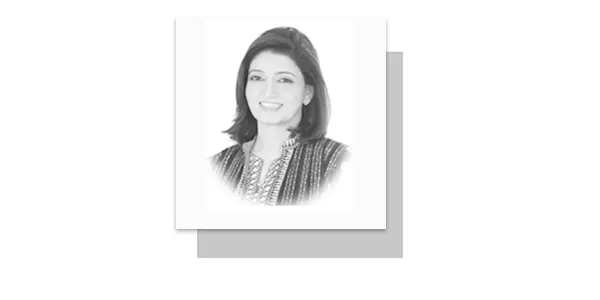INDIA’S gigantic elections began on April 19th 2024. The final count will happen in June 2024. The exercise will last for seven weeks; it has almost one billion voting, and spans over seven phases. The election process itself is history in the making. The democracies of the world are witnessing a new first, never before in the human and political history of the world such a long and phased election has ever occurred. As per the established norms of political science, the spread of the electioneering is itself is undemocratic. This is not the only thing that is problematic about the Indian polls. The debate is not around which party will win but perhaps on whether BJP (Modi’s party) can improve on its 2019 victory and by how much.
Modi’s win is almost a given. The manifesto and the theme of the BJP campaign is titled “Modi Ki Guarantee,” in which he commits to take his nation into the top three economies of the world, launch a final and decisive assault against poverty, open up newer avenues of growth, unveil the next generation of reforms and take a number of pro-people decisions. This Modi Ki Guarantee comes out at a time when voters have serious concerns about unemployment, inflation and overall distress in the world’s fastest-growing economy. However, Modi’s 10 years in power took India from being the 9th largest economy to number 5 and it also experienced the largest growth in GDP compared to the other major economies. The optics and indicators are great, but there is trouble in paradise.
The population remains largely impoverished, youth employment rates are higher than global levels, the rising inequality in India is also one of the highest in the world with it earning the title of ‘The Rise of the Billionaire Raj’ for a study on wealth inequality. The report reveals that India’s top 1% income share ranks the highest in the world behind Peru and Yemen amongst a couple of other small countries. The top 1% in India holds 40% wealth of the country. The Billionaire Raj headed by India’s modern Bourgeois is now more unequal than the British Raj headed by the colonist forces says the author of the report. India has mastered the art of fudging data, thus giving much to celebrate on paper. But economists and serious researchers are raising questions about India’s poverty estimates. India has a score of 28.7, indicating a serious level of hunger. The Modi government’s claims to spectacular growth are contradicted by rising inequality and stagnant living standards for the vast majority. The recovery, in the jargon of economists, is K-shaped, where the rich are thriving while the poor struggle.
The other very difficult front for “Modi’s Win” is the Indian Farmers Movement. It’s one of the biggest social movements the country has seen in decades. The year 2024 has been a protest year for the farmers of India, they are charged and are mobilizing to challenge rural impoverishment under a destructive neoliberal model. The use of heavy-handed state repression faced by them at the Punjab-Haryana border in February 2024 may backfire during elections. Nearly fifty four thousand farmers and farmer labours committed suicide between 2018 and 2022. Between 1995 and 2018 almost four hundred thousand farmers committed suicide in total. All of them have families and loved ones. The increasing fragmentation of agriculture land holdings has made life harder for the majority of small and marginal farmers.
The media control and its very apt use has allowed Modi to build the facade of having no competition whatsoever. It’s per past practice, he has turned the electoral contest into Modi versus the rest. Independent analysts are of the view that Modi will have to deal with a lot of discontent and in all likelihood there will be attrition, we may witness an ugly election. For BJP like all elections this will also be a hard climb. Recent polls indicate 44% want Modi government to return to power, however a sizable 39% are not in favour of BJP.
Modi as always as a last resort turns to using hate speech against the Muslims and Pakistan bashing. He called them “infiltrators” at a recent rally, in the state of Rajasthan. This was a direct hit at the Congress party for it having a more inclusive approach. “If it [Congress Party] returns to power, the party “will gather all your wealth and distribute it among those who have more children, they will distribute it among infiltrators,” Modi continued, “Do you think your hard-earned money should be given to infiltrators?” The Congress party’s President Mallikarjun Kharge, labelled Modi’s comments as “hate speech” and the party spokesperson called them “deeply, deeply objectionable.” Critics of Modi say that India’s long-standing values of diversity and secularism have been undermined since the BJP assumed leadership ten years ago. They allege that the party promotes religious intolerance and, at times, condones violence. President of the All India Majlis-e-Ittehad-ul-Muslimeen party, Asaduddin Owaisi said “Since 2002 till this day, only ‘Modi guarantee’ has been to abuse Muslims and get votes.”
Modi’s blatant repression also has a transnational dimension. The 2023 Human Rights Report from the US State Department released in April 2024 says, “India engages in transnational repression against individuals in another country”, seemingly referring to alleged assassinations and assassination attempts carried out by Indian agents in Canada, Pakistan and the United States. The biggest question staring the Indian electorate in the eye is, will the Ram Mandir Temple drama at Ayodhya enacted in January 2024, at the former site of Babri Mosque, and such similar acts and statements designed to sway India’s Hindu majority voters give Modi his win or issues that are central to their lives like unemployment, hunger, one of worst economic inequality in the world, and farmer suicide, take centre stage. These issues impact Hindu and minority voters alike.
—The writer is Rector, Millennium Institute of Technology & Entrepreneurship.
Email: [email protected]










